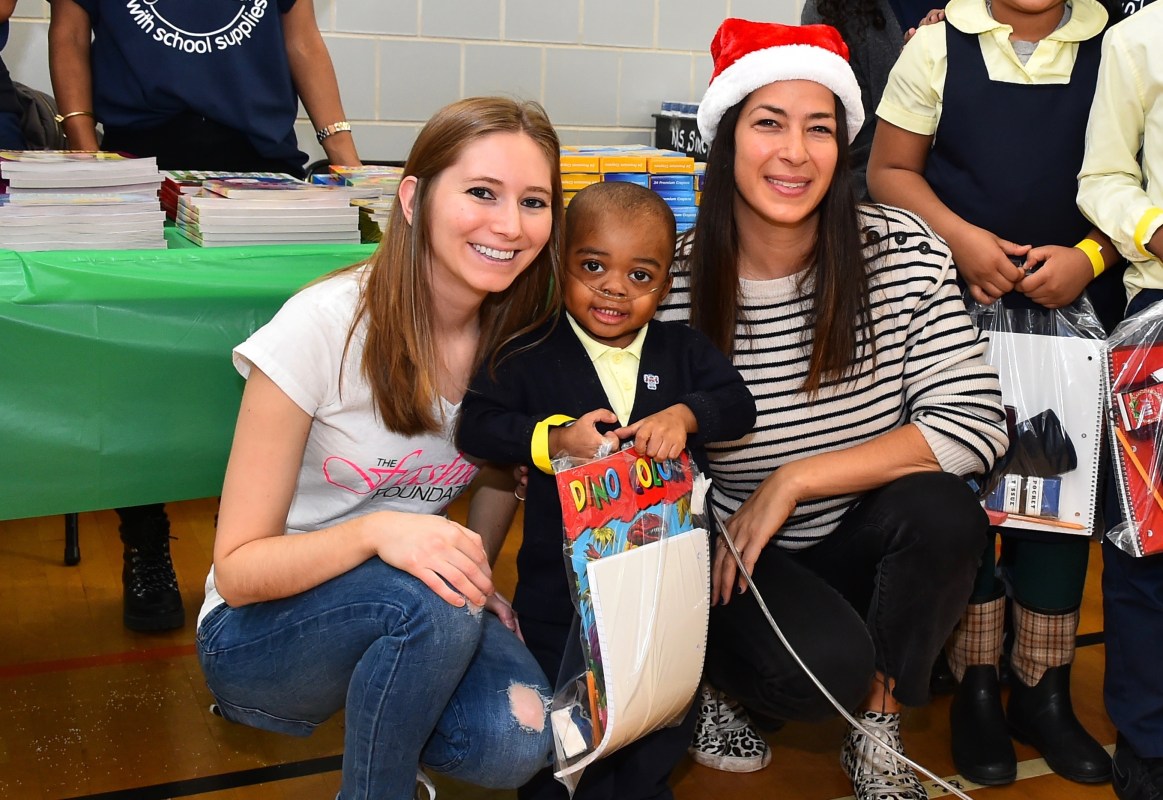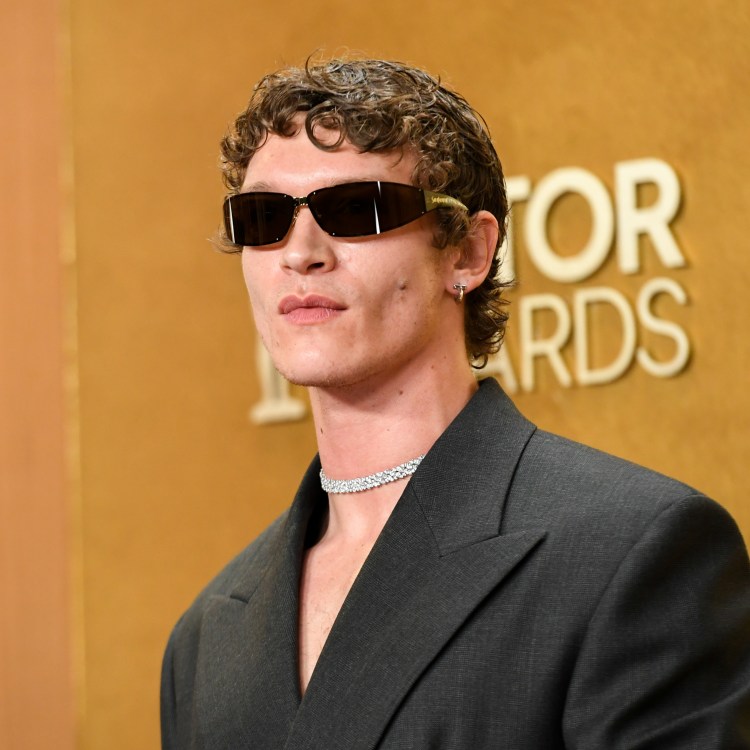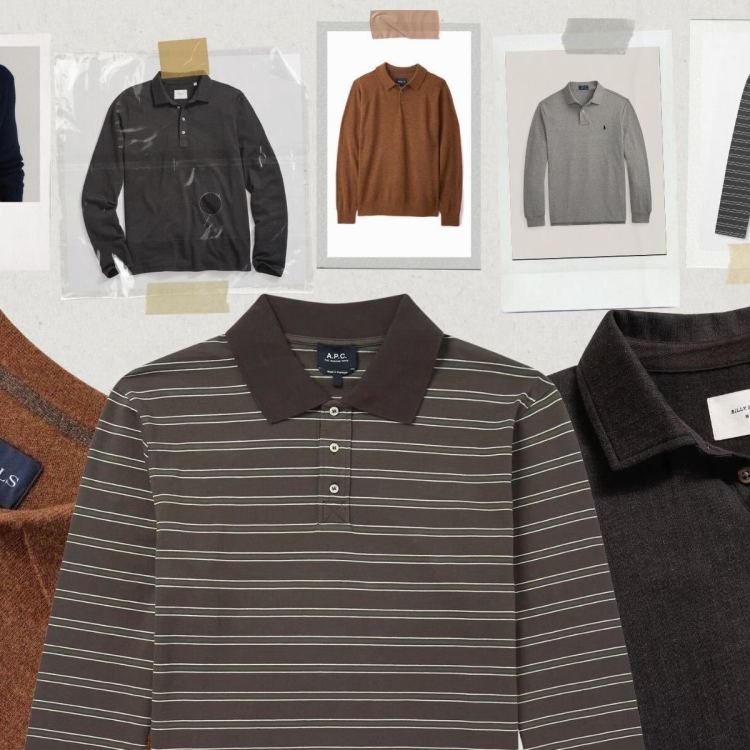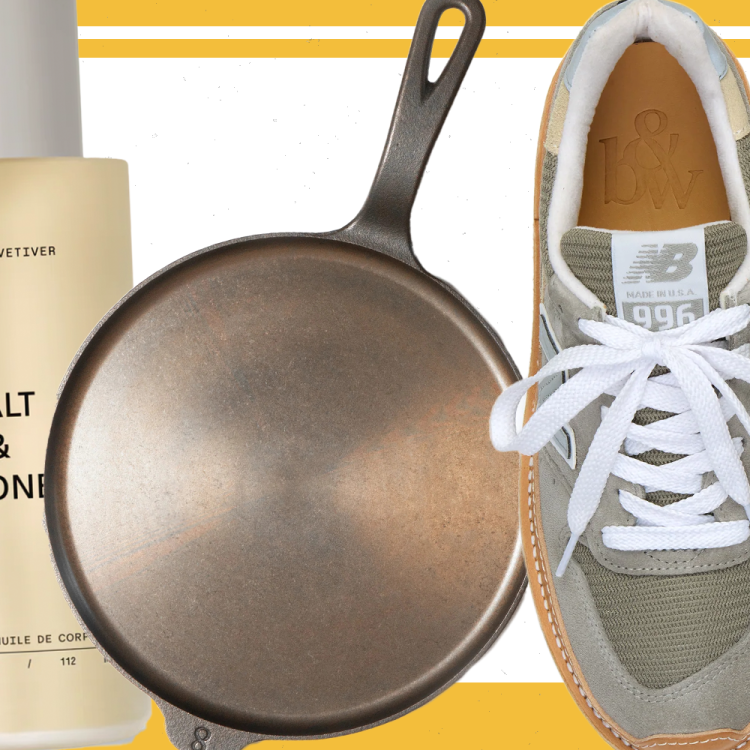While interning for some of the top designers in the world for six years, Amanda Munz noticed a trend—brands constantly throwing their unused samples into the garbage. Her senior year at the Fashion Institute of Technology (FIT), Munz had an “aha” moment and decided to start a nonprofit that would change the face of the fashion industry for the better.
Munz worked from her aunt’s basement for two years, where every day she would open up a folding table and a folding chair. She only had one clothing rack, that she filled up with donations from friends and family. Now, she has her own office space and a showroom in Long Island. Thousands of donated pieces have come from some top designers and her biggest supporter is Rebecca Minkoff.
The Fashion Foundation is unique because Munz found a way to create a fashion nonprofit that funds education. The foundation takes the excess samples from designers and retailers and sells them in their physical and online shop. They use the money from the sold merchandise and various fund-raisers to provide supplies for 10 local New York City schools. They never hand a school a check and instead ask the staff to provide a list of needed supplies. The team always comes to the school to hand out the supplies and spend a day with them.
Munz hosted a fundraising soirée on Friday, May 18 at a donated 525 West 52 street building’s space. Over $9,000 dollars were raised during the party and the funds sent 88 kids from a school in Harlem, PS 169, on a field day to Victorian Gardens in Central Park. The rest of the money is going to Munz’s biggest project yet, which she announced at the event. An elementary school in Brooklyn, PSIS 155 received a grant and turned a classroom into a library. But this library doesn’t have a single book. Munz’s mission is to fill it up with books by this summer. The GoFundMe campaign went live that Friday.
Ivy Lesser, a speech therapist, who works at the special ed school (PS 169) in East Harlem, was enjoying the soirée. Her students were able to go on the end-of-the-year trip, thanks to the foundation. “This would not have been possible because the school ran out of funding,” said Lesser. The foundation also provided them with supplies.“Our students were so happy. When they saw some of the supplies that came in, they were like “those are for us?!” Lesser said she was really lucky to have met Munz and is looking forward to continuing working with the foundation.
Amanda Munz is a petite 27-year-old woman from Lindenhurst, New York., who looks so young that you could mistake her for an intern if you didn’t know who she was. A lot of tedious work and time goes into planning these fund-raisers. “If we don’t have a connection for vodka, then we are gonna call every single vodka company until we get a vodka sponsor,” she said.
At the event, Munz seemed to have everything in order. She quietly worked the room, talked to everyone, took pictures with the guests and smiled widely the entire time. She is a true role model for millenials—a successful and inspiring founder, who has already been featured in the New York Times and WWD. Surrounded by the charm of the soirée, it’s easy to forget that Munz is not someone who works at a high fashion brand, has a stable salary and spends hours designing shoes. After all, she is a founder of a charity and spends over 12 hours every day working to send school supplies to kids. You’d never guess that Munz is the only employee of the nonprofit.
“I’m the one shipping out the orders, handling the website, social media, planning our galas, doing our school donations. I’m the person who does everything,” she said.
There were no visible signs of exhaustion on her face. Her skin was glowing and she was radiating positive energy at the event. Either Munz fakes it well or she has found a good work-life balance. Perhaps, her energy comes from an enormous passion that she has for her work, and she’s happy her dreams are becoming a reality. When does she have time to eat or sleep and how does she support herself? She says that she always has “a side hustle” when needed, but that the foundation is her “baby.” So she’s basically, a full-time mom.
Everyone who works at the Fashion Foundation is either a volunteer or an unpaid intern. Stephanie Fiorello, a 20-year-old intern, who works at the Fashion Foundation’s showroom on Long Island, was helping with the event. She said that she applied for the internship because she liked the cause to help children. “It’s so heartfelt and so meaningful. Just to be a part of this is awesome. This is definitely the best internship I’ve had so far,” she said.
Since the start in 2014, Munz said the foundation has received over $50,000 worth of donated merchandise. Her biggest challenge is selling the merchandise and raising more money. But looking at the pattern of her consistent work over the years, there’s little doubt Munz won’t solve this obstacle. She’s already had some major breakthroughs.
Munz interned for Swimwear Anywhere, one of the largest swimwear manufacturers in the country, for five years, since she was 16. While attending FIT., she thought she wanted to be a buyer, but soon realized the job involved too much math. Her senior year, after noticing the wasteful trend at her internships, she decided to start her own nonprofit. She knew the fashion side, but not the business side. So right after FIT, she enrolled in master’s in public administration program at Baruch Colllege.
She said many people at Baruch wore suits and she was “this little fashion girl with a Louis Vuitton bag.” She felt like Elle Woods from the movie Legally Blonde. Everyone at Baruch knew why she was there because she would ask very specific questions about nonprofits during the lectures. She would sit down with professors after class, brainstorming the idea of her nonprofit. One professor said, “you have the fashion side down, now where do you want the money to go to?” She decided—to education.
Looking back, one of her inspirations was a young entrepreneur Adam Braun, the founder of a large nonprofit, called Pencils of Promise, that builds school and increases educational opportunities in the developing world. When Munz was still in college, one summer, she volunteered at their event in the Hamptons. “I met Adam a couple of years later and I told him, ‘you are the reason that guided me to the nonprofit side of life,’“ she said.
By the time Munz graduated from Baruch in 2014, she had already filed for a 501c3 charity. She said most of the professors over the years believed in her vision, but there was only one, back at FIT, who told her not to do it and instead go work for somebody else. “He said you’ll never make it. He said you will never get people to donate samples to you. And I still sit here, and I want to email him and tell him, you know what, I didn’t make it yet, but we’ve got a couple good things going on,” she said.
She worked from her aunt’s basement for two years. Things moved forward when she started attending a lot of networking events and emailing everyone she met. One of these connections paid off. A designer emailed her that their office was moving showrooms and that they had a bunch of handbags they would like to donate. “How soon can you pick them up? You might want to take a U-Haul truck,” they said.
She didn’t tell anyone, except for her cousin, and the next day the two went to pick up the donations. “This company loaded up my car with designer handbags. And I remember leaving there and thinking, ‘holy sh-t, I did it, I got my first designer donation.’ It actually worked.”
It was the hardest to get the first designer donation, but from there it was a trickle-down effect. Through word of mouth, more donations started coming. Soon, Komar, a pajama company, donated 13 boxes of pajamas.
The real growth started when Munz met the designer Rebecca Minkoff at a SoHo fund-raiser for the Leukemia & Lymphoma Society in 2016. Minkoff asked for her business card, and a week later her assistant emailed her, saying that they are donating 20 boxes.
“So literally, I remember opening the email and crying,” Munz said. “That was the moment that really changed my life. And I tell her that every time I see her. Rebecca Minkoff wholeheartedly supports me. She talks about us, she shouts us out on social media. Her and her company genuinely care about what we are doing.”
Munz said it’s not the same with other companies. Some just want to get rid of their samples and don’t care where the funds are going. Minkoff’s donation physically pushed Munz out from her aunt’s basement—there were just too many boxes—and she moved to an office in Long Island.
That December, Minkoff brought her entire staff with the Fashion Foundation to a school in Brooklyn to hand out holiday gifts—all kinds of school supplies. During that event, Munz met a little boy who really touched her heart. “He was the cutest little boy. He walked in and he had an oxygen tank on. He was tiny. And there was just something about him—he lit up the entire room,” she said. She’s never done anything like this before, but she wanted to do something extra for him. So she reached out to the school to get his mom’s number and took him and his entire family to see a circus.
Munz said it’s so important to physically come to the schools and hear from the students. One high school student told her that they used to wear football helmets on the field because they didn’t have softball helmets. “You don’t learn about these things until you’re sitting in a classroom,” she said.
She was so happy that Minkoff’s team came and spent the day with the students. “Coming to a school humbles you, brings you back to Earth for that one day,” Munz said. In September 2017, Calvin Klein employees also volunteered their time. Collectively with the Fashion Foundation, they fundraised to fill a table with school supplies. Kids picked out what they needed and filled their bags.
Munz’s goal is to get more top designers to support the Fashion Foundation. People gravitate to big names and this could push them to the next level. Amiee Lynn, Laura Delman, and Expressions NYC are some of the other names that have donated.
“If Tory Burch, Marc Jacobs and Sam Edelman supported us the way that Rebecca Minkoff does, everybody would benefit from that,” Munz said.
This article appeared in an InsideHook newsletter. Sign up for free to get more on travel, wellness, style, drinking, and culture.

























